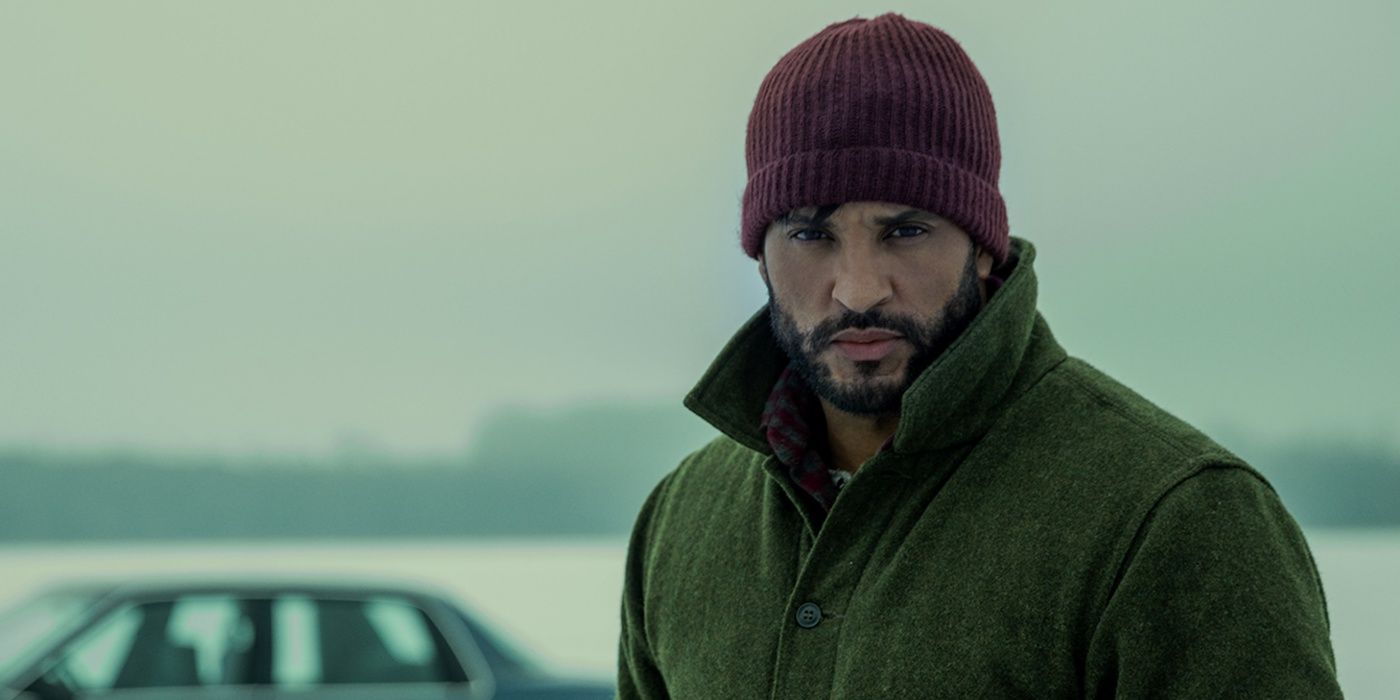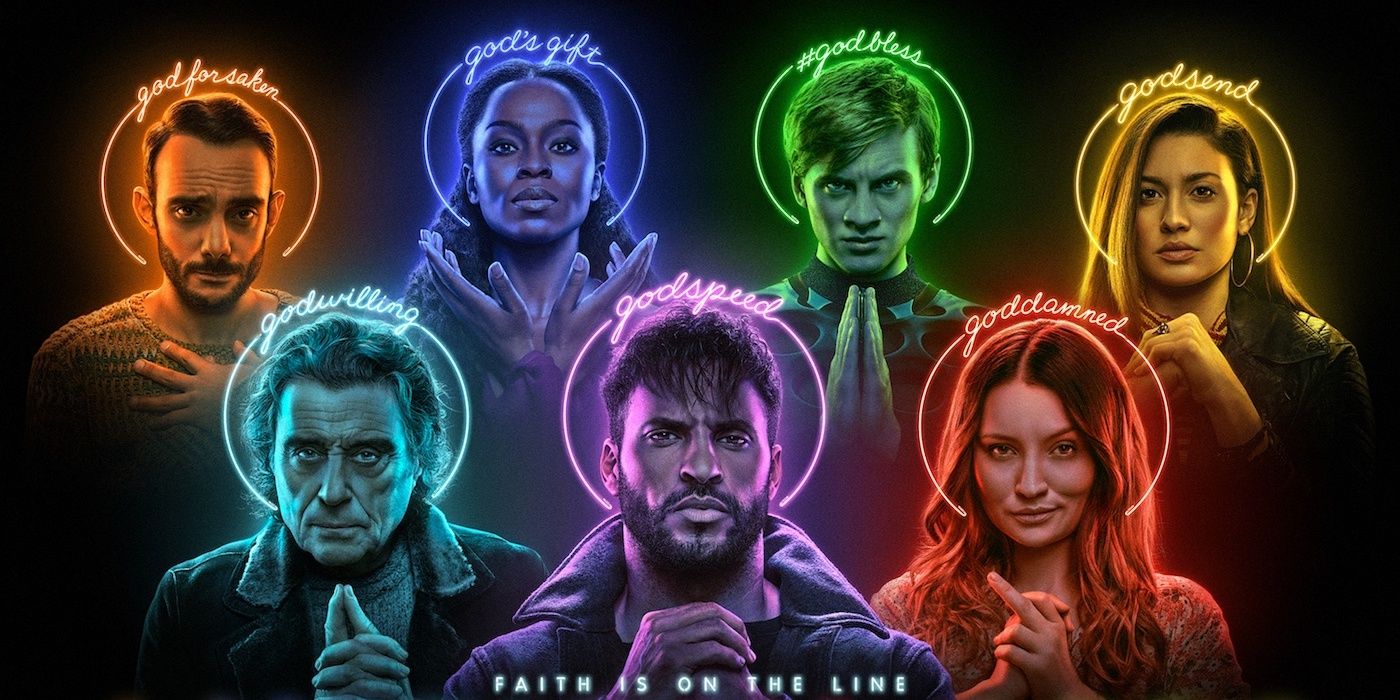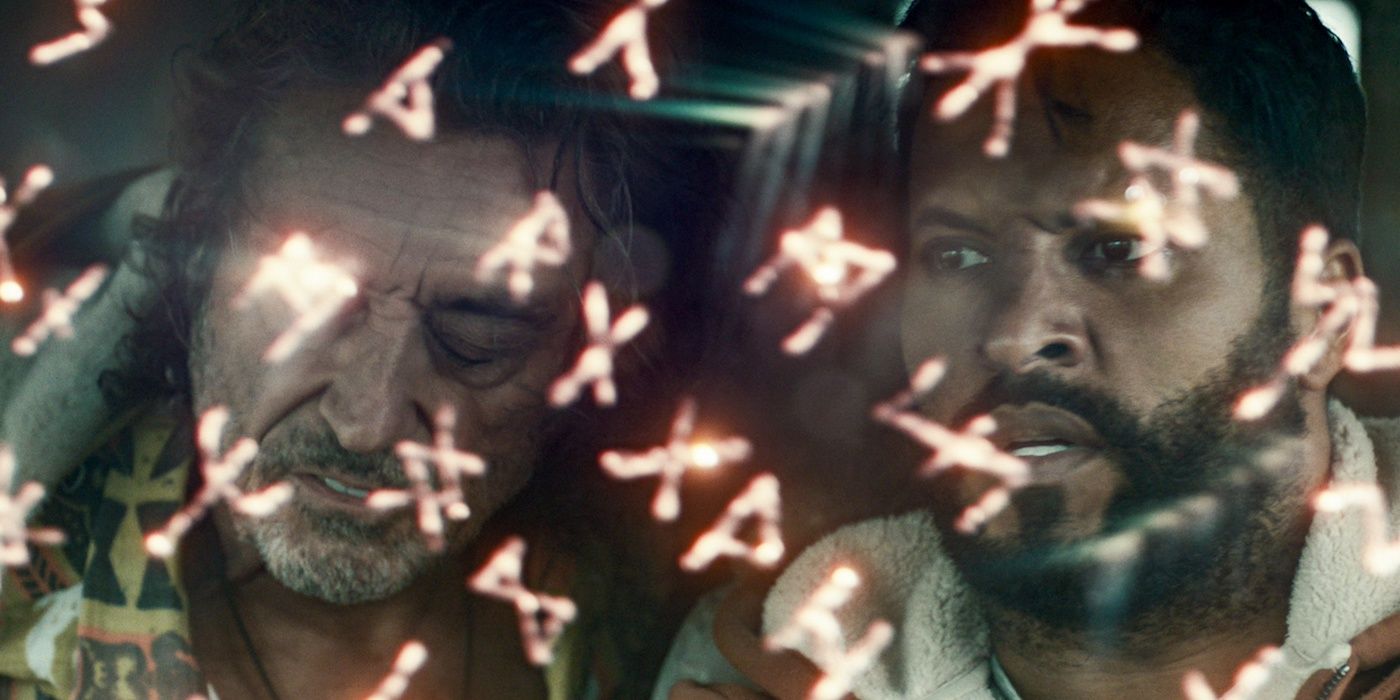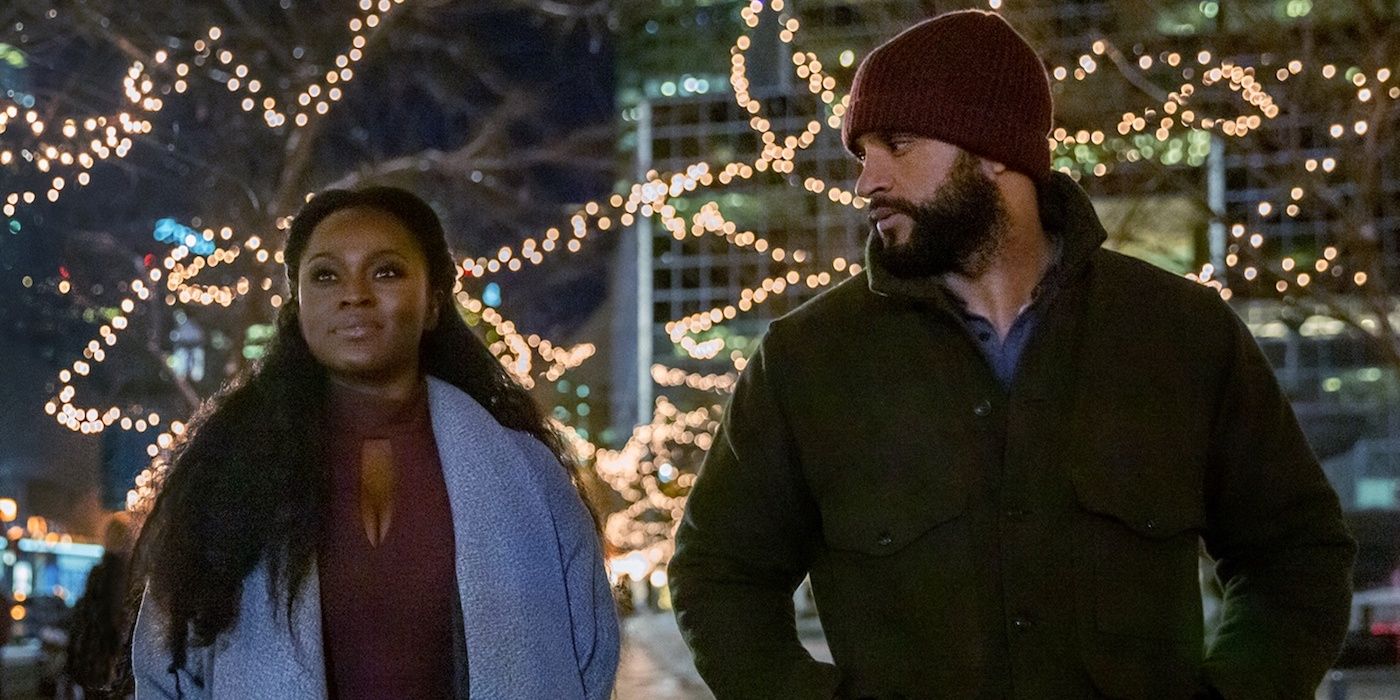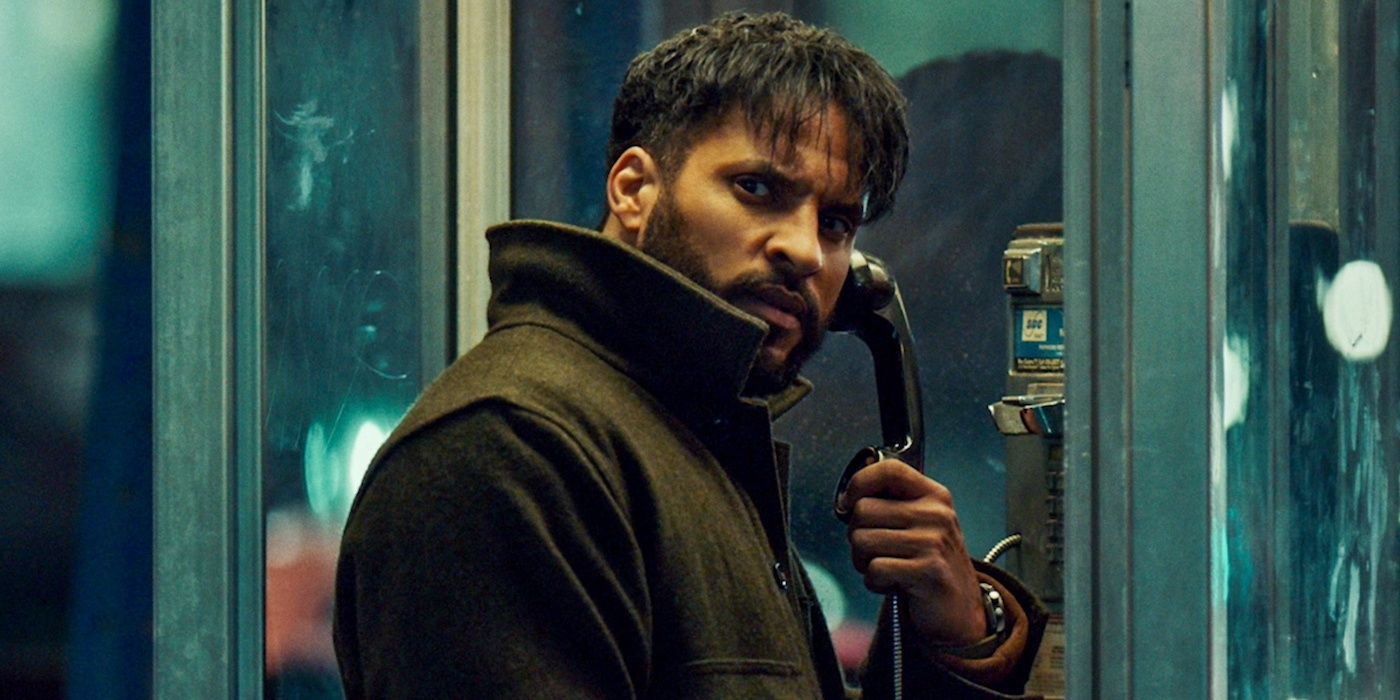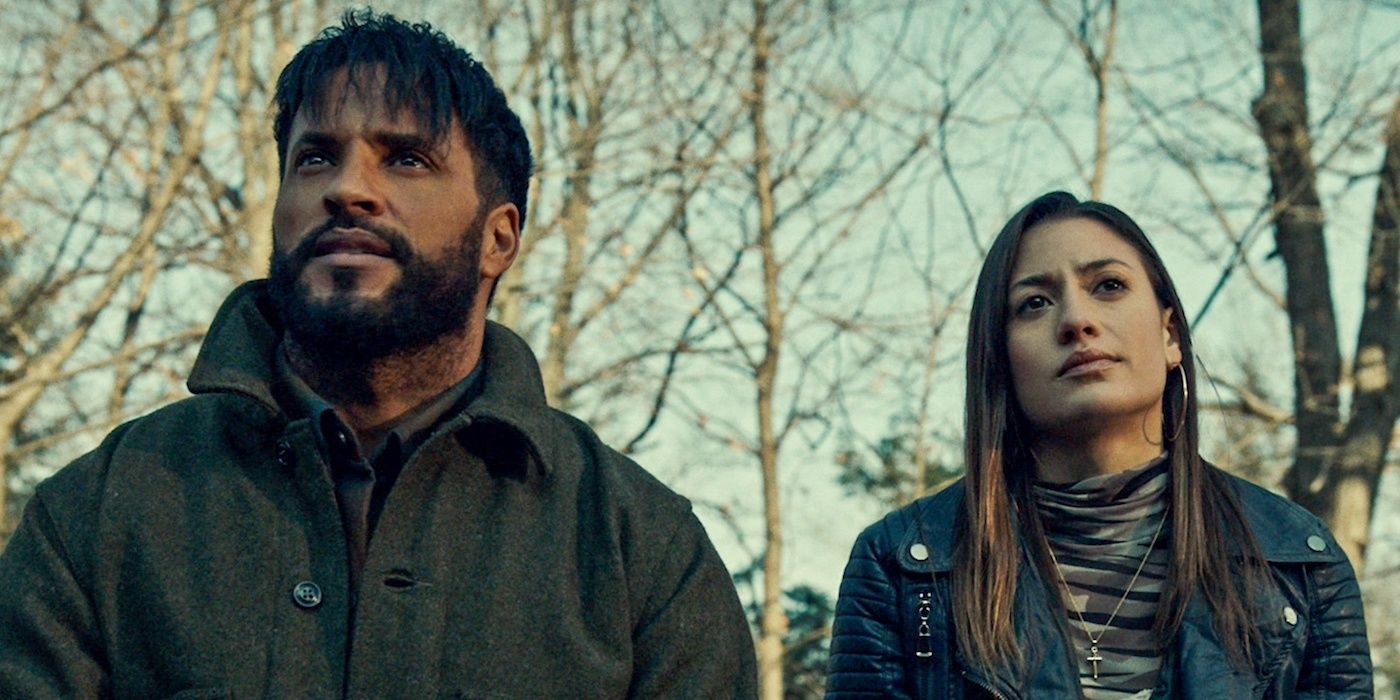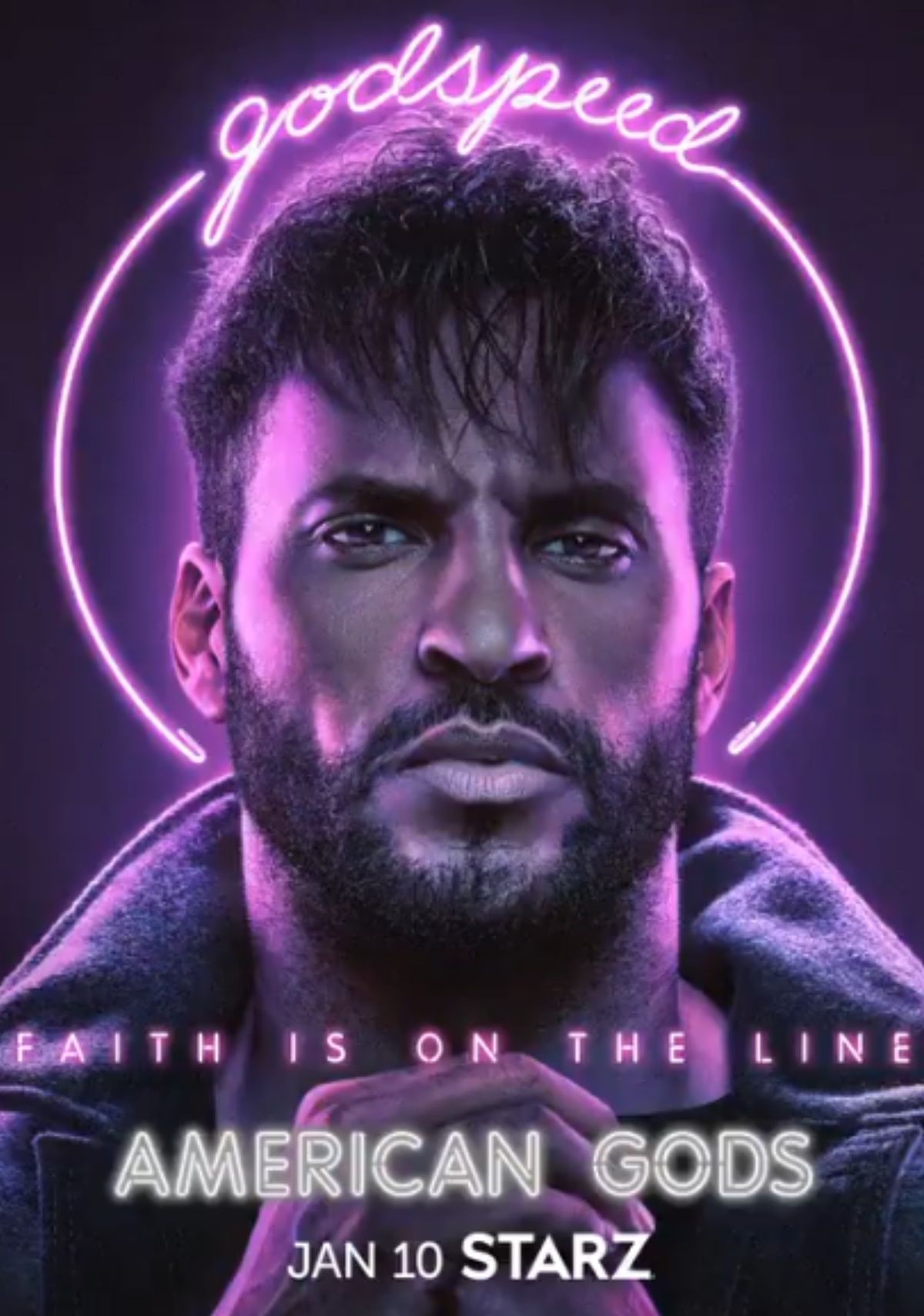The epic saga of the inevitable war building between the Old Gods of mythology and the New Gods of technology continues with Season 3 of the Starz series American Gods, as Shadow Moon (Ricky Whittle) comes to terms with the fact that Wednesday (Ian McShane) is not only the Norse god Odin, but that he’s also his father. Hiding out from his destiny in the snowy town of Lakeside, Wisconsin with the desire to forge his own path, Shadow soon learns that he can’t ignore or escape his ancestry.
During this 1-on-1 phone interview with Collider, Whittle talked about Shadow’s daddy issues, how what’s going on currently in the world affects how you view the story they’re telling, digging deeper into his character’s history, how the show has evolved over the seasons and with the different showrunners, and that he knows how the story potentially ends.
COLLIDER: I’m happy to have a new season and new episodes of American Gods again.
RICKY WHITTLE: That’s always good news. It’s exciting because we’ve all gone through quarantine and I’ve watched pretty much everything. There’s nothing new anymore. So, it’s exciting that American Gods comes out in 2021 and it was one of the last things that was shut down before quarantine. I’m excited to get some fresh material out there.
Since you have been watching a lot of stuff, to ask you an unrelated, fun question, if you could put yourself in any TV show, whether it’s currently on or something from the past, what character would you want to play and what would you want to do in that world?
WHITTLE: Oh, my goodness. You’re insane! That’s impossible. You can’t ask that. There’s far too much. If you narrowed it down to a genre or even a TV show, I couldn’t decide which character I’d wanna be. I grew up on Baywatch and Knight Rider, so I obviously had a David Hasselhoff fan club thing going on. The Fresh Prince of Bel-Air and Will Smith were always fun. There’s a lot of stuff in the past that was great, but it was always about the chemistry, which was more important. Nowadays it’s about big explosions and special effects, whereas it was always down to good chemistry and dynamics and relationships, back in the day. When you look at great movies, like Dirty Dancing, it was always about a relationship. That’s important to me on our show. It’s sci-fi/fantasy with gods, CGI, leprechauns, and dead wives, but it’s essentially about relationships. That’s where we can make it relatable and I still get to have that old classic fun, where we get to build chemistry.
It’s also a show with some major daddy issues on Shadow’s part.
WHITTLE: You don’t get bigger daddy issues than your father is Odin, the God of all Gods, especially when you don’t find out until you’re a grown man and you’ve literally had a life of hell. Your mother passed away when you were 15, you’ve never had a father figure, you never had friends, and you bounced around until you found the beautiful young lady who you married. And then, you find out that your father also had her killed, and then he wants favors. That’s where we find Shadow Moon in Season 3. He’s now become a petulant teenager who doesn’t wanna talk to dad, and rightly so. He has a few issues there that he needs to unpack.
This show has always been timely and that timeliness evolves. Depending on what’s going on in the world, you can recontextualize how you look at the show. Do you feel that the racial reckoning that we’ve been experiencing, especially this last year, has impacted this season, in any specific way? How do you think this season speaks most deeply to viewers?
WHITTLE: For me, it’s what’s going on, off-camera, which is the true strength of this show. This is an adaptation of an incredible book written by Neil Gaiman that was published in 2001. The fact that it’s never been more relevant and current than it is now speaks volumes. It’s insane. It’s incredible. It’s not like we would trying to adapt our show to match modern-day. This is just modern society. It’s what we live in. It’s just insane that it’s still there, in that moment. Some things have changed. iPhones weren’t even a thing in 2001. That’s how much Neil was ahead of the game.
What excites me about this show, especially in America, is what’s happening off-camera. You have a show with a person of color lead, in myself, and an incredibly diverse cast, but it’s about the time that Neil and Chic [Charles] Eglee had before the season started to really craft the story and to really think and look deep into the histories of these characters. We bring in the Orishas this season, who are Shadow’s Black ancestors that are there to guide him. We have Chango, who’s played by Wale. They’re there to guide him and help him harness the power and the strength. He also interacts with Bilquis this season. We couldn’t do that without facilitating true change and showing the change. Black Lives Matter, diversity, hearing minority voices, the #MeToo movements, and having strong women step forward are all great, but it’s all talk. For me, it’s about action. You can be saying you love me while hitting me in the head with a baseball bat. I’m paying attention to the actions, to be honest, so what you need to look at is the actions. You can’t really create all of that when you don’t practice it yourself.
For our show, I was invited into that writers’ room, as the lead and the hero and the protagonist. They wanted to hear that voice and know how I felt. In that writing room, Chic built up so much diversity because he wanted to hear authentic, true voices. He had a room that was roughly around 10% cisgendered straight white men. The rest was Black, white, biracial, Latinx, LGBTQ, and formerly incarcerated. It was important to him, to me and Neil, and should be to everyone, that representation matters and inclusion matters. You’ve got powerful female stories, you’ve got powerful LGBTQ stories, and you’ve got Black and white stories, but they come from an authentic voice. There are fantastic stories, but they have to come from a true voice. You can’t have that diversity on camera without having that diversity in the creative.
That’s what I’m truly proud of our show doing at the moment. It’s actually showing action and facilitating change. It’s not just talking about it, but it’s showing it. That diversity and strength of authentic voices in production is then mirrored on camera with the cast that we have. There are so many diverse voices coming forward. And then, people at home can look at their screens and go, “I relate to that person. That person is me.” That’s what’s important. You just wanna see yourself on screen and know that you’re being represented. For me, that’s what we’re very proud of this season. This season is really strong. It’s a true return to form. It’s an epic season. It’s got my favorite episode, which is an Ocean’s 11 type of episode, where you see Shadow really grow and let loose. It’s the old con man Shadow, where he’s just having fun. Shadow is having fun this season, which is something that I was really happy about.
This show has definitely been on quite a journey. You’ve had different showrunners each season, which means different points of view. What has that been like as an actor? Has there been a bit of an adjustment period each season, with trying to figure out that showrunner’s point of view, or changes in tone or things that might be evolving in the story that you didn’t know you were going to do?
WHITTLE: There’s a scene in Episode 1 of Season 3 where Mr. Wednesday is talking about Becky, his car that we’ve had through the first two seasons. He’s got a different car this season and Shadow questions that. Wednesday’s response is, “Same soul, different chassis.” The soul of the show is always gonna be the same. It’s an adaptation. It’s Neil Gaiman’s book. If anyone’s wondering why we’re veering off, go read the book. That’s what we’re doing. We know what we’re doing. We know where our characters are going. That’s how I was able to build Shadow Moon, or deconstruct Shadow. I know where he’s gonna be. What I had to do was break him down to Episode 1 of Season 1, where he’s lost everything. He’s a broken shell of a man, devoid of personality, charisma, and emotion. He’s empty. And then, in Season 2, I was able to build those layers in. In Season 3, Neil Gaiman and Chic Eglee had so much time this season. Season 1 had Bryan Fuller and Michael Green, who are incredible. I love them to bits, and they built an incredible Season 1 that set the bar so high. What a foundation. Season 2 was more of an eccentric treasure hunt. He was all over the place, drifting here and there and finding bits of gold.
Because Neil Gaiman and Chic Eglee had so much time before they started writing and before the show went into production, they were able to really think this whole season out and this whole story out. They were able to arc Seasons 3 and 4, so that I, as an actor, now understand my whole arc as a character. I can completely understand the highs and lows and the levels that I need to hit, at specific points in our story. It’s very comforting, as an actor, to have that kind of efficiency. This is definitely the most efficient season yet, without fail. We were getting scripts way before walking on the set, whereas previously, we hadn’t. That’s really comforting, as an actor, because you get to prep and that’s where you get performances. The fact that the cast is incredible is another bonus. We’ve got such incredible talent coming through the doors, that to have that prep with some really great writing was really powerful for this year. It really is a true return to form.
Because there was that time, did you have any serious conversations about Season 4, what that could possibly be, and how Shadow’s journey would continue?
WHITTLE: Yeah, we touched upon that. I was in the writers’ room, so I’ve seen how the whole story plays out, through Seasons 3 and 4. Chic and Neil put their heads together about how to end this story, so I know how the story potentially does end now, which allowed me to play the character throughout Season 3 with the mindset of moving towards Season 4. So, we definitely know where we want to go. We definitely know how all of the main threads, arcs, and characters are gonna come together for an epic ending, and I’m truly excited by it. In true American Gods fashion, there are a lot of Easter eggs this season, as there were in Seasons 1 and 2. We told you everything you need to know in Episode 1 of Season 1. That’s the fun of sci-fi/fantasy.
We have such an intelligent audience, we don’t have to spoonfeed them. If you look deeply, you can find all the information you’re ever gonna need on this show. So, there are a lot more Easter eggs in Season 3, alluding to what’s gonna happen in Season 4 and where we go. It’s very exciting to me. This is a very, very strong season. It’s fun and it’s quirky. It’s a very different feel in Season 3, but it was always gonna be. My favorite part of the book is Lakeside, and that’s where the show really turns into a murder mystery and flips 180. There’s a whole new cast in Lakeside, that we brought in to play out that story. And then, mother nature added a brutal Toronto winter to the production process, which was horrific and very, very painful on the body. It’s a very different feel this season, but it’s all designed that way. It’s meant to feel different because we’re at a different stage of the story in the book, as we move into the final stages of this fantastic adaptation.
American Gods Season 3 premieres on Starz tonight — Sunday, January 10 — 8/7c. New episodes of American Gods air Sunday nights on Starz.

